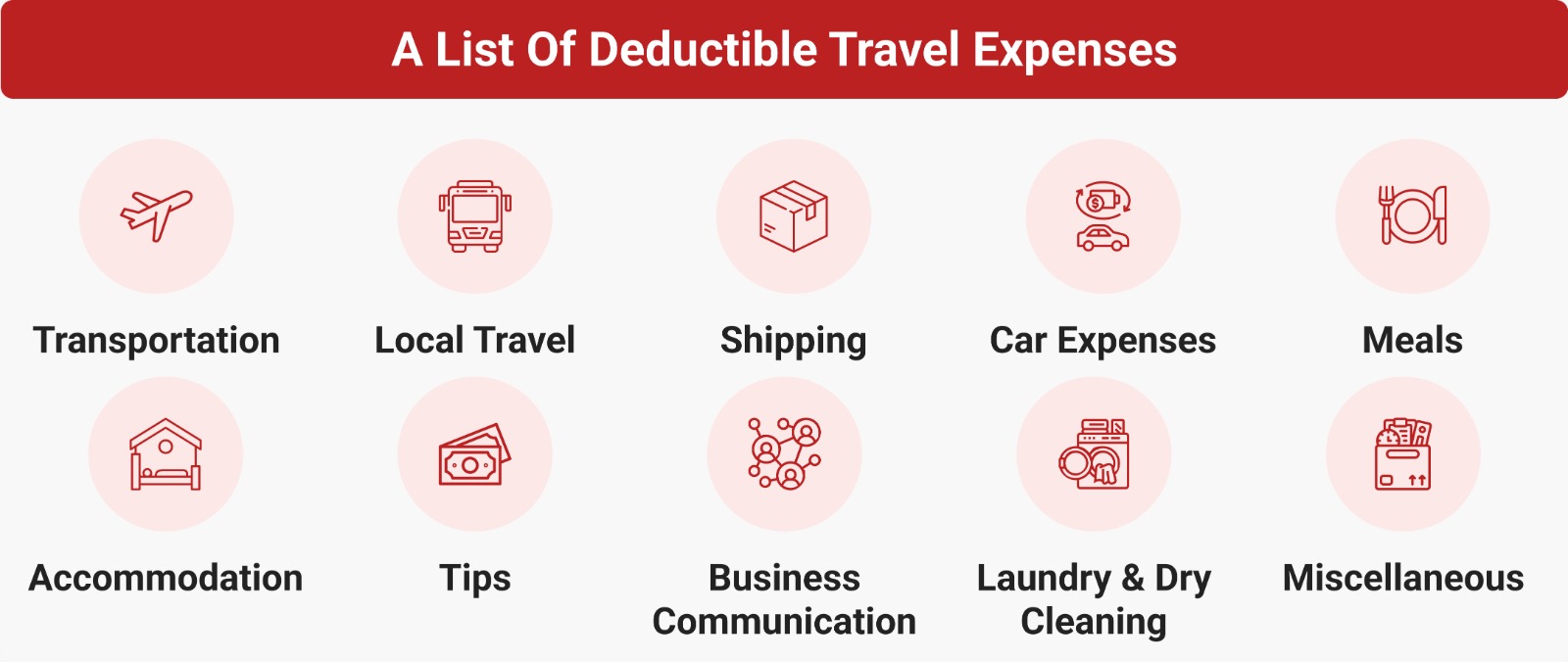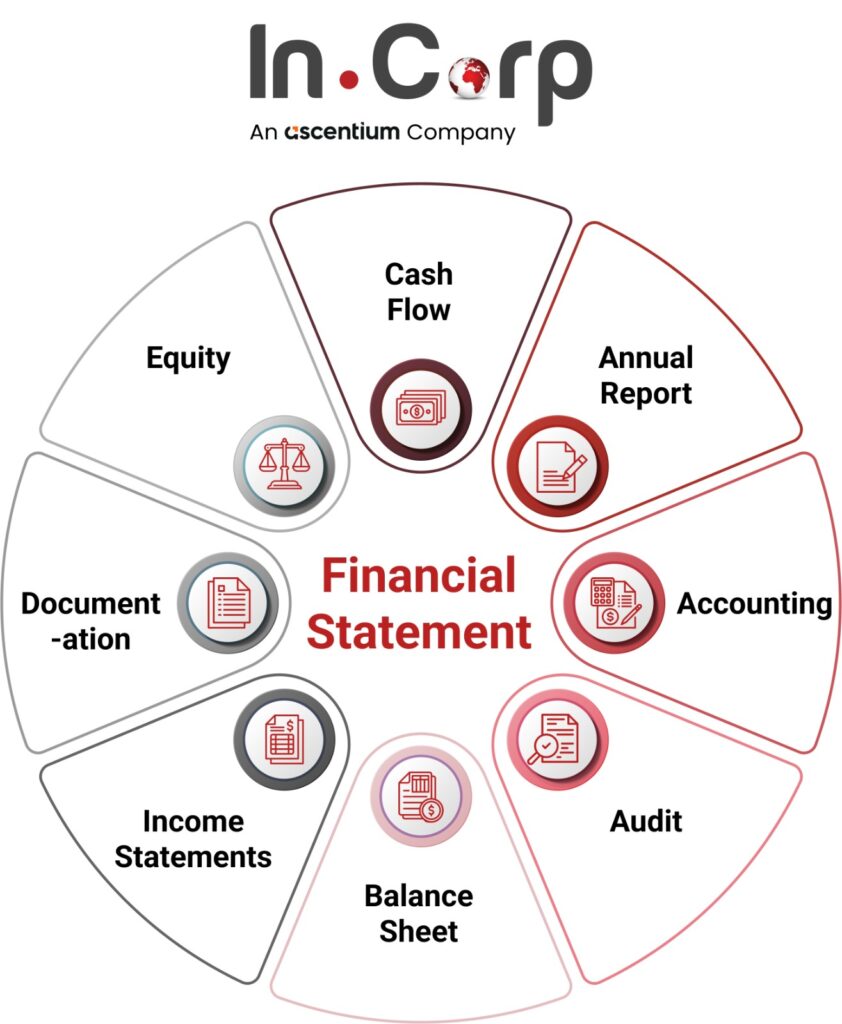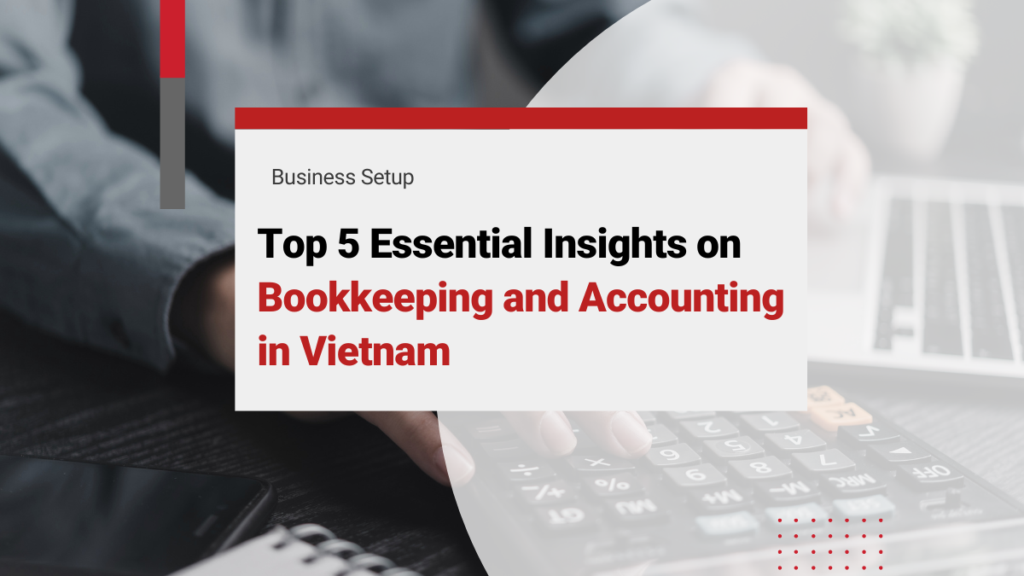Understanding bookkeeping and accounting in Vietnam is essential for any SME or startup operating in the country. Vietnam’s accounting rules are defined by locally developed Vietnamese Accounting Standards (VAS) and evolving regulations that demand strict documentation and reporting. Many companies streamline these processes by partnering with professional bookkeeping services in Vietnam, ensuring compliance and accuracy from day one.
This guide explains the key requirements and best practices, including the upcoming move to IFRS, documentation for expenses (especially travel), language and currency rules, and audit obligations. We also discuss the pros and cons of in-house versus outsourced accounting services and how to choose a qualified provider.
Vietnamese Accounting Standards (VAS) and IFRS Transition
Vietnam’s bookkeeping rules are governed by the Vietnamese Accounting Standards (VAS), issued by the Ministry of Finance. All enterprises in Vietnam—whether local or foreign-owned—must comply with VAS when recording transactions. These standards prescribe formats for financial statements, charts of accounts, and accounting books. Compliance is mandatory to ensure accuracy and avoid tax audit penalties.
VAS is a rules-based system, adapted from older international frameworks, requiring precise templates and entries. In contrast, the principles-based IFRS (International Financial Reporting Standards) allows more flexibility and professional judgment. Many foreign investors find VAS rigid, which often leads them to maintain two sets of records: one in VAS for local reporting and another in IFRS for their parent company.
Vietnam is preparing to converge with IFRS under a government roadmap targeting full adoption by 2025–2026. The plan began with voluntary adoption for larger companies (2022–2025) and will gradually become mandatory. The goal is to improve transparency and global comparability.
For now, bookkeeping and accounting in Vietnam still means strict adherence to VAS. Businesses should stay alert to IFRS developments, invest in staff training, and plan system upgrades to be ready for the coming transition.
Check out InCorp Vietnam’s VAS to IFRS Conversion Guide
Essential Documents for Expense Recording and Tax Compliance
Strict record-keeping is at the core of bookkeeping and accounting in Vietnam. To claim business expenses as tax-deductible, companies must keep complete supporting documents that meet Vietnamese tax laws. At a minimum, this includes valid VAT e-invoices, signed contracts or agreements, and proof of payment for each transaction.
A key compliance rule is the non-cash payment requirement. From October 2025, any purchase or expense of VND 5 million (≈ USD 210) or more must be paid via bank transfer or corporate credit card. Previously the threshold was VND 20 million, but the lower limit now applies. If a company buys office equipment for VND 6 million in cash, the deduction will be disallowed unless non-cash proof (e.g., transfer slip or card statement) is provided.
In practice, VAT e-invoices (issued electronically with a tax authority code) are required for most transactions. These invoices must clearly identify the buyer, seller, goods or services, and tax details. For each expense, companies typically need both the e-invoice and a corresponding payment voucher. During audits, authorities verify that every expense has a proper invoice and, when applicable, non-cash payment evidence. Missing documents can lead to disallowed expenses and penalties.
For transactions with foreign vendors, invoices may be issued in another language. Regulations require that these be translated into Vietnamese for tax inspection. Companies should keep both the original and the translation on file.
Key requirements for deductible expenses:
- VAT e-invoices issued to the company.
- Contracts/agreements for larger purchases or services.
- Non-cash payment proof for expenses ≥ VND 5M. Payments via employee personal cards may qualify if other documents are complete.
- Vietnamese translations for foreign invoices.
Maintaining this documentation ensures compliance, strengthens internal bookkeeping, supports accurate financial statements, and helps avoid costly disputes with tax authorities.
Read More: Stay Aligned With Regulations In Vietnam
Business Travel Expenses: Documentation and Deductibility
Handling employee travel costs is a common challenge for bookkeeping and accounting in Vietnam. The tax authorities require strict documentation before travel reimbursements can be deducted. In general, companies must formalize business trips in writing (an “assignment decision” or travel order stating the purpose and duration of the trip) and then support each expense with appropriate vouchers.
Vietnamese regulations allow two methods for travel expense accounting:
- Actual expense reimbursement – supported by receipts and invoices.
- Per diem allowances – a fixed daily rate based on company policy (no receipts required if policy is formalized).
For actual reimbursements, documentation is critical:
- Airfare: Keep the e-ticket/invoice and boarding pass. Expenses ≥ VND 5M require non-cash proof (e.g. bank transfer or card payment). If the company pays directly, obtain a VAT invoice; if the employee pays, they must provide the e-ticket and boarding pass.
- Accommodation & Meals: Hotel invoices and restaurant receipts are required. Again, non-cash proof is needed for bills ≥ VND 5M. Many companies opt for per diem to simplify this.
- Transport: Taxi or ride-hailing receipts must be kept. For hires ≥ VND 5M, add non-cash payment evidence.
- Miscellaneous: Internet fees, conference costs, or other travel-related expenses should have invoices and payment slips where possible.
Recent guidance confirms that expenses paid on an employee’s personal credit card can satisfy the non-cash requirement, provided all other documents are in place.
In short, travel expenses are deductible only when backed by complete documentation. The best practice is to issue a clear internal travel policy specifying required records—tickets, boarding passes, receipts, and payment proofs. This ensures your bookkeeping in Vietnam captures real costs, meets compliance, and avoids rejected deductions or tax penalties.
Check out InCorp Bookkeeping Services with InCorp Vietnam

Language and Currency Requirements for Bookkeeping
Vietnam’s bookkeeping regulations have clear rules on language and currency. By law, all accounting records and financial statements must be maintained in Vietnamese, reflecting official compliance requirements. However, companies are allowed to include a second language (typically English) for convenience in international dealings. In practice, this means the official books and reports are in Vietnamese, but you may prepare parallel English versions internally. This bilingual approach helps foreign managers understand the books, while ensuring the legal Vietnamese records are in order.
As for currency, the Vietnamese Dong (VND) is the default accounting currency. Every company’s books and statutory financials are generally stated in VND. Foreign-invested enterprises (FIEs) can apply to use a foreign currency (like USD or EUR) for their bookkeeping, but they must register this choice with tax authorities. Crucially, once approved, the chosen currency cannot be changed arbitrarily – switches are only allowed for specific reasons (such as major transaction changes) and usually only at the start of a fiscal year.
All financial statements ultimately filed with local authorities (tax department, investment department, etc.) must be in VND. If your business uses a foreign currency internally, you’ll need to convert figures to VND at the end of the year or period, using official exchange rates. This ensures consistency and comparability.
In summary, language and currency rules mean your Vietnam bookkeeping must primarily speak Vietnamese and Dong. Foreign currency records can be kept for your convenience, but only with proper approvals and conversions. Being aware of this ensures that your financial statements and ledgers fully comply with Vietnam’s bookkeeping requirements. These rules support clarity and consistency, which are key goals of the Vietnamese accounting framework.
Read More: Navigating Vietnam’s Tax Landscape: Expert Accounting Outsourcing Strategies
Dual-Record System for Foreign Companies
Foreign-owned businesses in Vietnam often operate under a dual-record system, keeping two sets of books: one under Vietnamese Accounting Standards (VAS) for local compliance, and another in the parent company’s standards (often IFRS or another GAAP) for consolidation. This is necessary because Vietnamese law mandates VAS-compliant accounts, while global headquarters typically require IFRS-based statements.
Managing this dual system is a core challenge in bookkeeping and accounting in Vietnam. VAS books must strictly follow Vietnamese rules—using the Vietnamese language, prescribed forms, and VND—and serve as the basis for statutory reports, tax filings, and audits. Meanwhile, IFRS books must reflect different accounting principles and often a foreign currency, ensuring global comparability.
To stay aligned, companies usually reclassify or translate transactions from VAS to IFRS regularly, often quarterly. Differences in treatments—such as asset depreciation or revenue recognition—require careful reconciliation so that IFRS statements tie back to VAS records with adjustments.
In practice, strong internal controls, accurate record-keeping, and accounting software capable of handling multi-currency and dual standards are essential. Done correctly, the dual-record system ensures local compliance while keeping overseas stakeholders informed, making it a fundamental element of bookkeeping and accounting in Vietnam for multinationals.
Annual Financial Statements and Audits
All foreign-invested enterprises in Vietnam must prepare annual financial statements in line with Vietnamese Accounting Standards (VAS) and have them audited by a licensed audit firm. The process is highly regulated: audited statements must be finalized and submitted within 90 days of fiscal year-end. For example, companies closing books on December 31 must file by March 31 of the following year.
Submissions typically go to the Department of Planning and Investment (Corporate Finance Division), the local tax authority, and the provincial statistics office. The package includes the balance sheet, income statement, cash flow statement, and explanatory notes, all signed and sealed as required.
The audit itself goes beyond legal compliance. Auditors examine vouchers, accounting records, and internal controls to ensure accuracy. Often, audits highlight errors or overlooked deductions, providing businesses with an important financial health check. Crucially, audited financials are also used to finalize Corporate Income Tax (CIT) obligations, with tax finalization dossiers generally submitted alongside the audited reports.
Non-compliance carries heavy risks. Failure to audit or submit on time can result in fines, penalties, or even legal liability. In severe cases, intentional avoidance may lead to criminal charges.
Key compliance points:
- Audit requirement: Annual financials must be audited by an independent firm.
- Filing deadline: Within 90 days of fiscal year-end.
- Submission: Filed with the DPI, tax department, and statistics office.
Timely, accurate audits are not only a legal obligation but also provide stakeholders—management, investors, and banks—with reliable financial insights.

Moving Towards IFRS by 2025
Vietnam’s accounting system is set for a major change as the government prepares to replace Vietnamese Accounting Standards (VAS) with International Financial Reporting Standards (IFRS). The shift aims to improve the quality and comparability of financial statements, increasing transparency for global investors.
According to the Ministry of Finance’s roadmap, IFRS adoption has three stages. From 2022–2025, large entities such as state-owned enterprises, listed companies, and wholly foreign-owned firms may adopt IFRS voluntarily (with approval). From 2025–2026, IFRS will gradually become mandatory, effectively replacing VAS. A new accounting circular and implementation guidance are expected to take effect on January 1, 2026.
For businesses, this change requires more than new report formats. It may involve adopting fresh accounting policies (leases, revenue recognition, financial instruments), upgrading IT systems, and providing extensive staff training. While the effort is significant, the benefits include stronger corporate governance, improved risk management, and easier access to international capital.
Companies should start preparing now by assessing differences between VAS and IFRS in key areas, such as asset valuation, consolidation rules, and impairment testing. Early adoption of selected IFRS standards can smooth the transition. Those who plan ahead will be best positioned to benefit from increased transparency and investor confidence.
Internal Audit Requirements Under Decree 05/2019/ND-CP
Beyond financial reporting, Vietnam also mandates internal audit procedures for certain organizations. Decree 05/2019/ND-CP, effective April 1, 2019, introduced unified internal audit requirements in Vietnam. From April 2021, listed companies and large state-owned enterprises (with over 50% state ownership) must establish an internal audit function and conduct audits annually. These audits must be completed within 60 days of fiscal year-end, though unscheduled reviews may be triggered by significant risks or defaults.
Companies may set up an internal audit department or outsource to an external firm, but auditors must be qualified, independent, and free from conflicts of interest. While the decree leaves room for additional guidance from the Ministry of Finance, its intent is clear: businesses must strengthen oversight, ensure accuracy, and prevent fraud.
For bookkeeping and accounting in Vietnam, this regulation brings greater accountability. Internal audits often lead to stronger controls—such as better invoice management and reconciliations—while demonstrating compliance, improving transparency, and building trust with stakeholders.
Choosing Between In-House and Outsourced Accounting Services
Outsourcing accounting services has become a strategic and cost-effective choice for many small and medium-sized enterprises, particularly within the context of bookkeeping and accounting in Vietnam. The costs of outsourced services are typically lower than maintaining an in-house team, while also offering greater consistency and stability by minimizing disruptions caused by staff turnover.
One key advantage is accountability when outsourced professionals make errors, the service provider is responsible for rectifying them, reducing the risk of penalties due to non-compliance with Vietnam’s evolving regulations. This added layer of protection is particularly valuable in the complex landscape of bookkeeping and accounting in Vietnam, where regulatory updates can be frequent.
Moreover, outsourcing grants businesses immediate access to experienced professionals without the burden of recruitment or training. It allows companies to focus on core operations while meeting financial reporting deadlines with greater confidence and efficiency—ultimately strengthening both compliance and overall business performance.
Check out Accounting Services & Tax Reporting Outsourcing in Vietnam
Selecting a Reliable Bookkeeping Service Provider
Engaging experienced professionals for outsourced bookkeeping and accounting in Vietnam significantly enhances service quality and compliance. A deep understanding of current tax regulations and accounting standards is essential for any provider offering bookkeeping and accounting in Vietnam. Moreover, service providers must hold a certificate of eligibility to ensure they are legally qualified to deliver reliable and compliant services, particularly regarding Vietnamese bookkeeping compliance requirements.
One of the key advantages of outsourcing is accountability—providers take full responsibility for errors, protecting businesses from financial penalties. Flexible pricing models also make bookkeeping and accounting in Vietnam more accessible, allowing companies of all sizes to choose service packages that align with their budget and needs.
When selecting a service provider, it’s important to evaluate their experience, certifications, service quality, and familiarity with your industry. A smooth transition to outsourced services ensures operational continuity, even during staff changes—delivering stability and long-term efficiency.
Read More: Benefits of Outsourcing Bookkeeping In Vietnam: Importance, Common Mistakes and Best Practices
How InCorp Can Help?
Vietnam’s financial rules require careful attention. Incorp Vietnam helps businesses stay compliant with local standards and manage necessary paperwork, including changes to international reporting. Incorp Vietnam offers support in setting up accounting or handling it directly. The goal is to ensure finances are accurate and meet all requirements, allowing businesses to focus on growth. Contact Incorp Vietnam to learn how our services simplify accounting.

clients worldwide

professional staff

incorporated entities in 10 years

compliance transactions yearly
Learn the Right Setup for Business
Expansion in the Vietnam
Frequently Asked Questions
What must be done with audited financial statements in Vietnam?
- Audited financial statements in Vietnam must be filed along with the tax finalization within 90 days after the conclusion of each financial year. Compliance with this timeframe is essential for regulatory adherence.
What is the Vietnamese government’s plan regarding IFRS?
- The Vietnamese government plans to adopt International Financial Reporting Standards (IFRS) to replace Vietnamese Accounting Standards (VAS), aiming for implementation by 2025.
What are the Vietnamese Accounting Standards (VAS)?
- Vietnamese Accounting Standards (VAS) are established principles and procedures by the Ministry of Finance to assist businesses in accurately maintaining and presenting their financial records. This framework ensures consistency and transparency in financial reporting across Vietnam.
Is the implementation of VAS mandatory for all enterprises in Vietnam?
- The implementation of Vietnamese Accounting Standards (VAS) is mandatory for all enterprises in Vietnam to ensure transparency, consistency, and comparability in financial reporting.






